 This time last year, I kicked off 2017 with a plea to stop using disposable coffee cups. In a piece of remarkably good timing, the House of Commons Environmental Audit Committee published its report on disposable coffee cups yesterday, almost a year to the day after my piece. Now, I can’t take all (any?) of the credit for this: plenty of people, some of them a lot more influential than me, have been making the point for several years now, although seemingly with little effect.
This time last year, I kicked off 2017 with a plea to stop using disposable coffee cups. In a piece of remarkably good timing, the House of Commons Environmental Audit Committee published its report on disposable coffee cups yesterday, almost a year to the day after my piece. Now, I can’t take all (any?) of the credit for this: plenty of people, some of them a lot more influential than me, have been making the point for several years now, although seemingly with little effect.
According to the report, at least 2.5 billion coffee cups are thrown away each year, with ½ million coffee cups being dropped as litter each day. What’s worse is that a lot of these cups are put into recycling bins by well-meaning consumers who think that they are recyclable when in fact they are not. This potentially contaminates the whole load, which means that it’s worse than just throwing them away. As the report notes, a depressingly small 1 in 400 disposable coffee cups are recycled.
In response to this, the report’s proposed solution is a minimum 25p levy on each disposable cup, something which has met with mixed reactions within the speciality coffee industry.
You can see what I make of it all after the gallery.
Quite a lot has already been written about the House of Commons Environmental Audit Committee’s report but I’d urge you to read it for yourself. Its headline-grabbing proposal is “a minimum 25p levy on disposable cups, to be paid by the consumer on top of the price of the coffee”. This, the report estimates, “would lead to a 30% reduction in the use of disposable cups, generating £438 million of revenue”. Of course, what happens to that revenue is important, with the report recommending that it “should be collected and managed by a central body and used to fund recycling infrastructure for the remaining cups in use”.
The initial reaction (as I write this, the report has been out for less than 24 hours) has been mixed within the speciality coffee community. There is justifiable concern about the implementation and the impact on small businesses. For example, will the charge apply to all coffee shops, or, like the recent introduction of a 5p levy on plastic carrier bags, will there be a cut-off point in the size of business, below which the charge will not apply? From my (admittedly brief) reading of the report, while it seems aimed at the larger coffee chains, it’s not clear if it envisages a cut-off in the charge or if it intended to apply to all reusable cups, regardless of the size of the outlet.
While the committee and the report it produced probably hasn’t considered the impact on the smaller, independent side of the speciality industry, on the whole I found it well thought out and well-reasoned. In presenting a levy on disposable cup use, it is not suggesting that this, in itself, is the solution (in contrast, the 5p levy on plastic bags has led to an 87% decrease in usage). Instead it recommends using the levy to raise revenue and using that revenue to fund recycling facilities, which, in as far as it goes, is a good idea.
What disappoints me is the coffee industry’s track record. We’ve known for a long time that disposable coffee cups aren’t recyclable. Caffeine Magazine wrote about it back in 2014, but most people still believe that coffee cups are recyclable and we’ve done little to challenge that. Perhaps I’m missing something since these days I always take my own cup, but I can’t remember any coffee shop I’ve visited prominently drawing consumers attention to the fact that the takeaway cups can’t generally be recycled. This is something that the report forcibly points out in one of its first recommendations: “Coffee shops with in-store recycling schemes should place a ‘recyclable in stores only’ label on their coffee cups. Those without in-store recycling should print their cups with a ‘not widely recycled’ label.”
The challenge, therefore, is to both educate the customer and provide the necessary facilities. There have been some attempts to tackle this, which are noted by the report, but they’ve been uncoordinated. One such approach is to use compostable cups, but this relies on the customer knowing that the cup is compostable and also having somewhere to compost it (compostable cups which go into landfill are very unlikely to compost, something pointed out by Bean Thinking’s excellent article on the subject). I’m okay, since I have a compost heap at home, but that still relies on me carrying the used cup home with me, at which point, frankly, I may as well be carrying a reusable cup around with me instead of a compostable one.
The solution envisaged by the report has similar problems. Unless manufacturers, spurred on by the levy, introduce cups that can be recycled with general paper waste, there still remains the problem of how to get the disposable cups to the dedicated recycling facilities. There are suggestions of in-store recycling bins, but I’m not sure that works since the whole point of the disposable cup is that you take it with you. How many people are going to then carry it back to the shop to recycle it? Again, at that point, you may as well be carrying a reusable cup around with you.
For such a scheme to work, coffee cup recycling bins (which, the report envisages, would be part of larger efforts to tackle “to-go” packaging) would have to be ubiquitous. They’d need to be on street corners, in stations, on trains, in offices… Everywhere in fact. The alternative is that I have to carry my dirty coffee cup with me until I find a suitable place to recycle it, at which point (you probably know what I’m going to say by now), I may as well be carrying a reusable cup around with me.
Although the report is ambitious, I’m not sure that what it proposes is achievable. While the headline-grabbing “latte levy” garnered a lot of attention, there was this, less widely-reported, recommendation that:
“the Government sets a target that all single use coffee cups disposed of in recycling bins should be recycled by 2023. If an effective recycling system is not established and achieves high levels of recycling by this date, the Government should ban disposable coffee cups.”
Now that’s a goal I can get behind! Honestly, we don’t need a 25p levy. We also don’t need to wait until 2023. The power to solve this particular problem lies in our own hands. We can just stop using the damn things. Then we wouldn’t even to ban them because there would be minimal demand.
That was my plea this time last year and I make it again this year. I’m pleased to note that some, like my friends at Bean There At, have taken this to heart, but there’s still a long way to go. Obviously 2017 wasn’t the year we kicked the disposable cup, but let’s try to make it in 2018, or at least make some serious in-roads.
For some suggestions on the alternatives to disposable coffee cups, check out my article from last year, while if you want to take the plunge, here’s my guide to reusable (speciality coffee) cups.
For an alternative take on the report, try this from Coventry University, while for a couple of excellent, well thought out and clearly presented responses from an industry perspective, there’s this from United Baristas while James Hoffman also weighs in on the issue. Fellow coffee-blogger Bex of Double Skinny Macchiato also shares her thoughts.
Meanwhile, the lovely people over at the Boston Tea Party have taken this to its logical conclusion and have done what I and others have been asking: from 1st June 2018, single-use takeaway cups will no longer be available from BTP cafes. You can read all about what BTP is doing, and why, along with how this is going to work, over on the BTP Cafe Blog.
December 2018: Reusable Cups, A Year On was a runner-up for the 2018 Most Popular Coffee Spot Award.
If you liked this post, please let me know by clicking the “Like” button. If you have a WordPress account and you don’t mind everyone knowing that you liked this post, you can use the “Like this” button right at the bottom instead. [bawlu_buttons]
Don’t forget that you can share this post with your friends using buttons below.

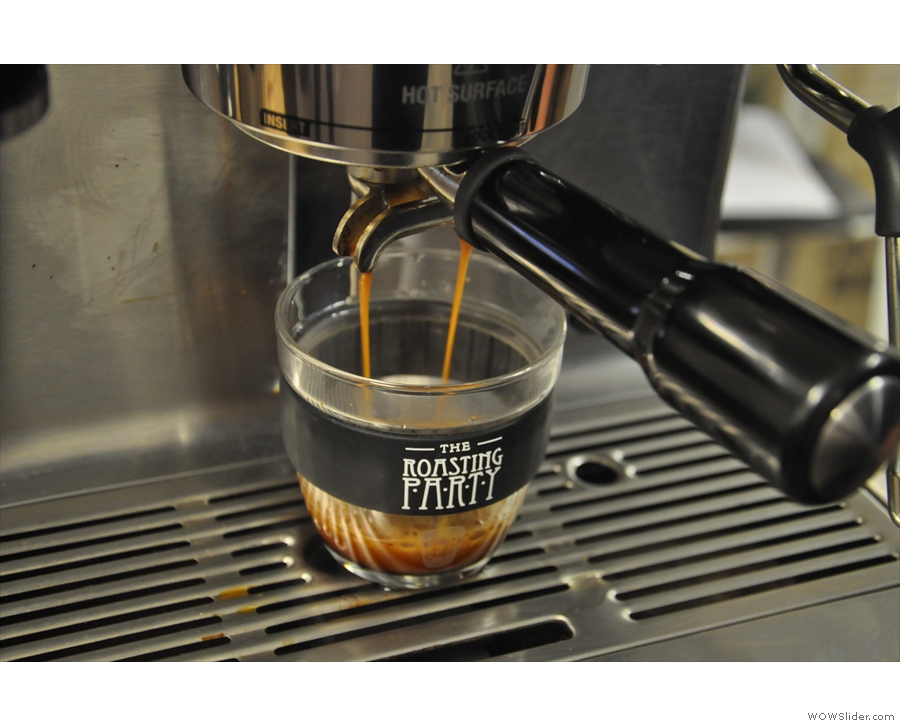







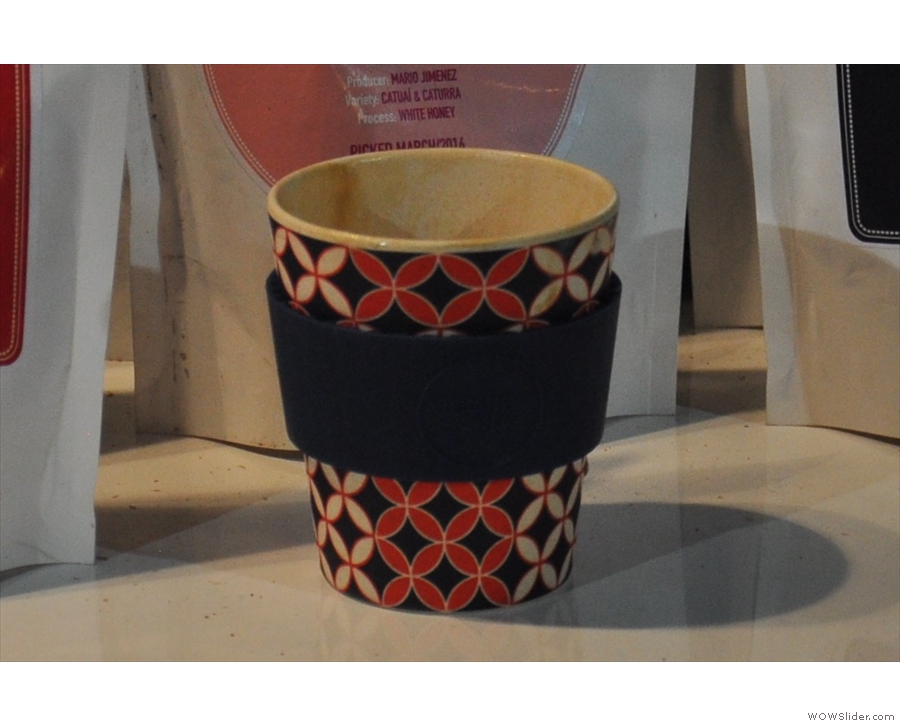


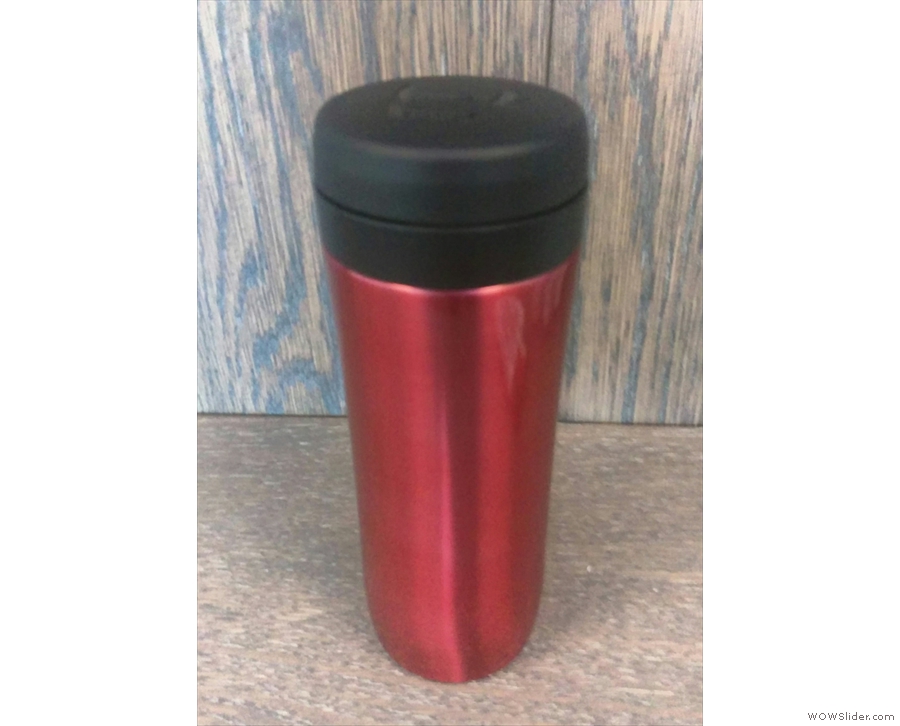
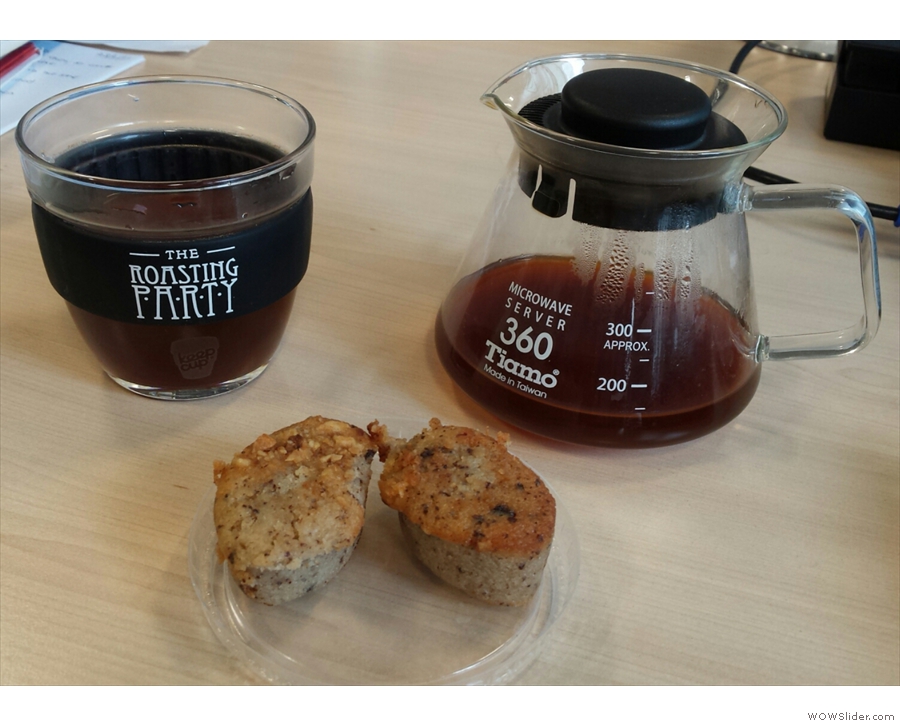
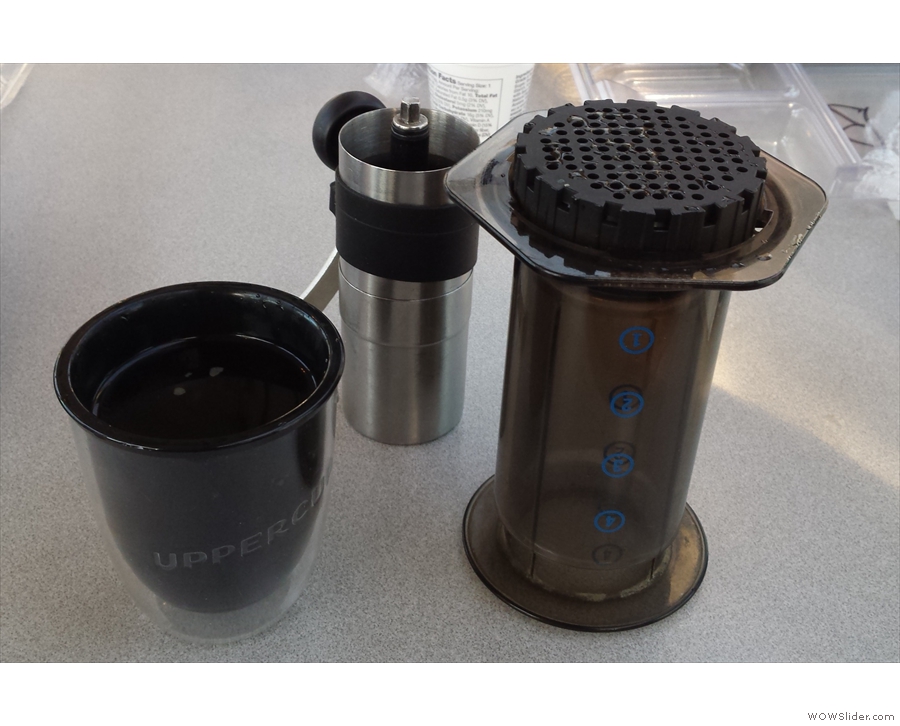
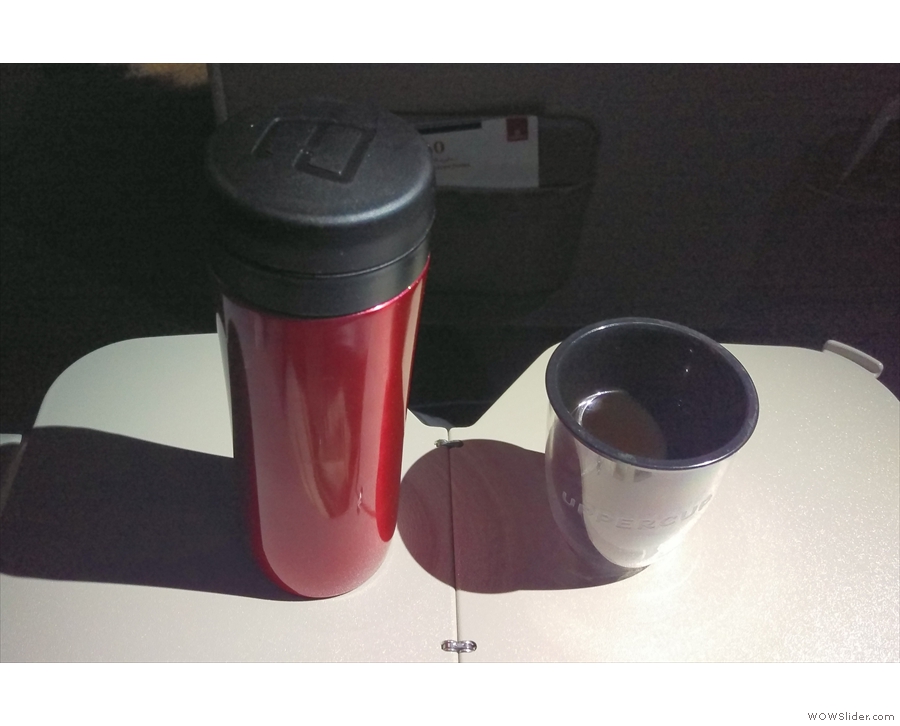
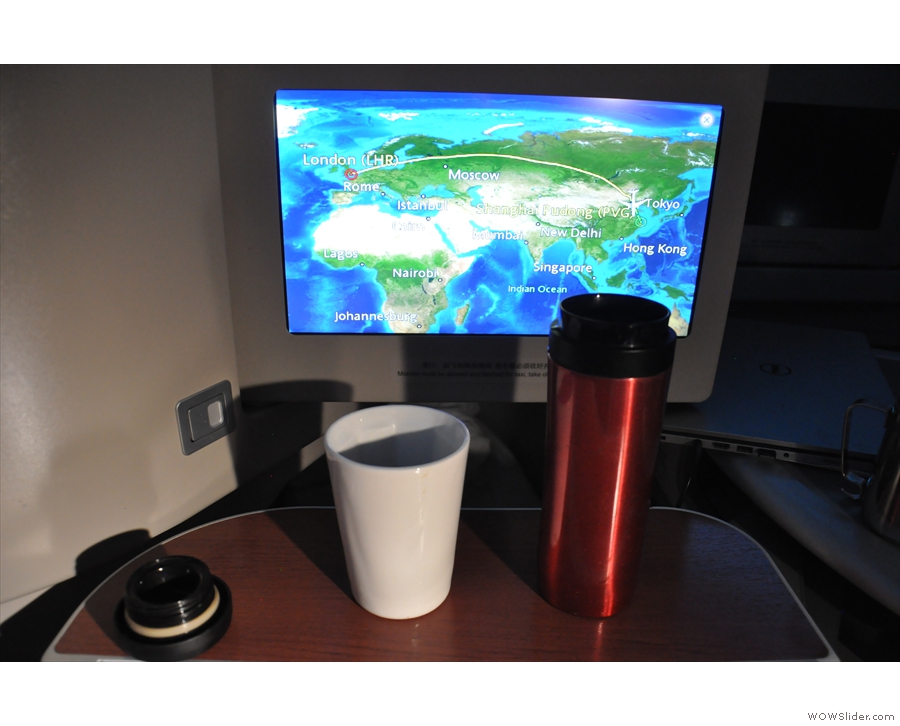
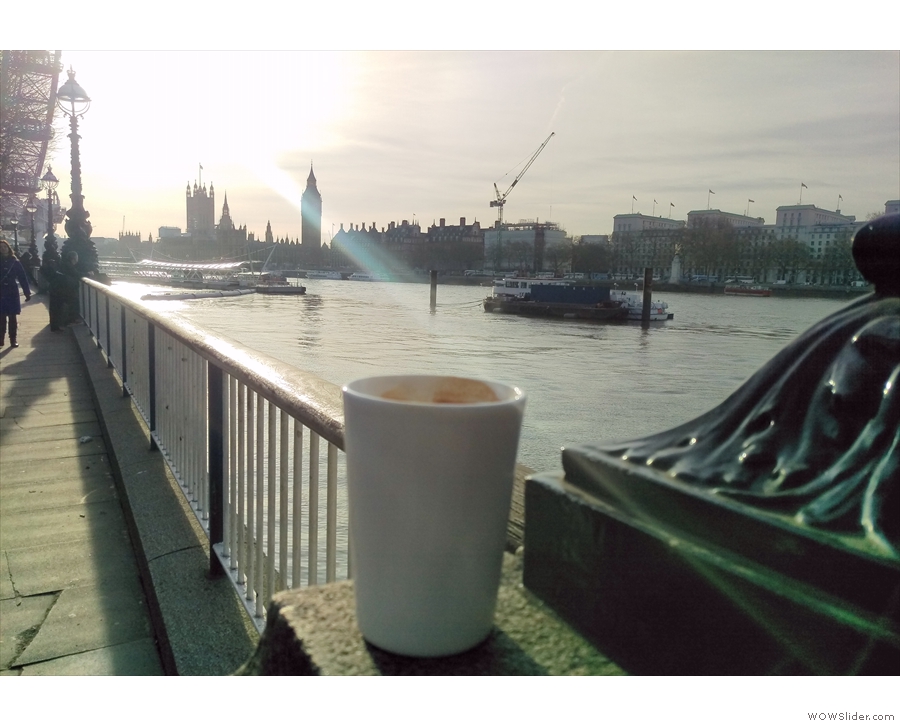
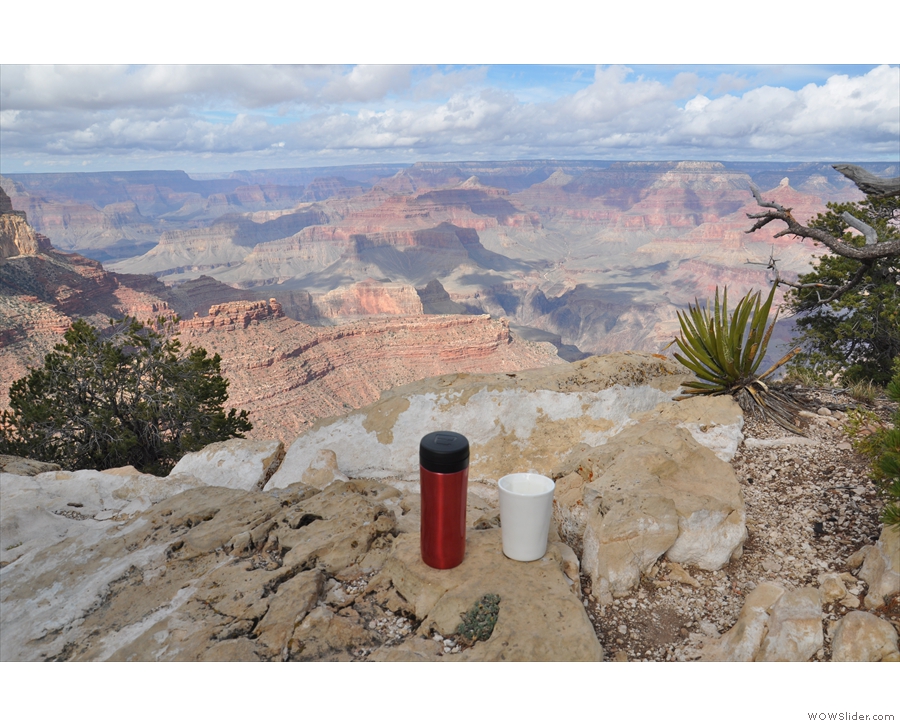
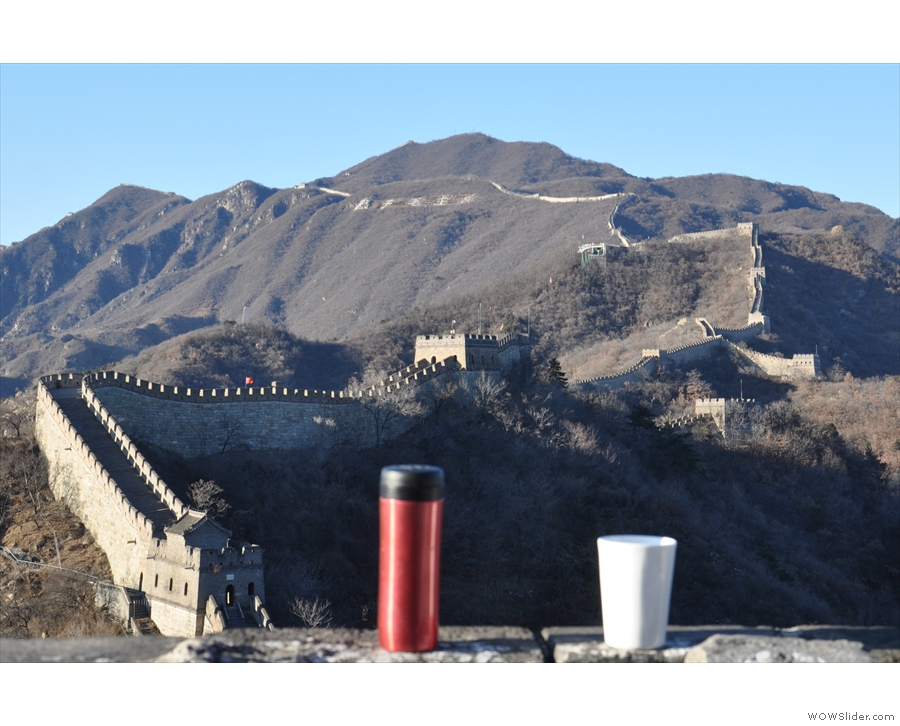
 1
1 2
2 3
3 4
4 5
5 6
6 7
7 8
8 9
9 10
10 11
11 12
12 13
13 14
14 15
15 16
16 17
17 18
18 19
19
Pingback: Reusable Cups | Brian's Coffee Spot
Thanks for this interesting and balanced take on this (and the link to the actual report, as well as the link to my composting article!). But what do you think prevents people from carrying a re-usable with them? Obviously there are times that it’s not convenient (I certainly don’t carry mine all the time), but then, coffee isn’t a necessity all the time, just wait until the next time you have your cup with you. How can we get a shift in public conscience (similar to the one in the 1980s against drink driving) where it becomes embarrassing to drink coffee from a disposable cup on the basis of the environmental damage it is causing?
It seems to me that if we as the principal supplier of the drink( in our case, roaster and cafe retailer) can make it as simple as possible to change our customers’ habits, then people will give anything a go.
An example i can give which has worked here is the RRR scheme – put simply we encourage customers to reuse the tins/ bags etc that the coffee is packed in to when they buy coffee for use at home. the tins are especially popular – they buy a tin with coffee in, and return to refill it for a nice 12% discount. Reuse, recycle, really good coffee ( we do the same for loose leaf tea.. don’t get me started on the tea path with all the appalling waste and sustainability of tea bags…that’s another major soap box for me!!)
One small thing that encourages our customers to buy the reusable cup in the first place is the free cup of coffee that is made in it – many cafes do this and it makes it much easier to convince customers to buy them.
We also offer a choice of cups – not everyone wants a particular style or make) – Ecoffee and Pokito work for us as they offer two very different styles , but thankfully there are SO many around now to choose from!
The third offer that goes down well with lots of our regular , daily customers is to offer to wash the cup out when they return for their ( discounted refill) – it’s a small thing ,but makes a difference as it saves them having to do it , possibly leaving it in the house, etc etc.
All grist to the mill!
“The third offer that goes down well with lots of our regular , daily customers is to offer to wash the cup out when they return for their ( discounted refill) – it’s a small thing ,but makes a difference as it saves them having to do it, possibly leaving it in the house, etc etc.”
I actually came here to comment that one thing that would increase my use of reusable cups would be the staff member more visible wiping out or otherwise performatively cleaning my cup before filling it. It’s not wholly (at all?) rational but a – washed and dried – cup that has been in my backpack feels unhygienic in a way that a paper cup stored god knows how doesn’t. As I say, irrational, and I almost always push past it to use my recylable. But for me it’s definitely the difference between 85% use and 99% use.
I agree 100%. Pretty much every decent coffee shop and cart that I’ve ever been to will rinse out my reusable cup before us as a matter of course, which is how it should be.
Thanks,
Brian.
There are some great examples there from Edgcumbes on what the industry can do. From an individual customer perspective, we can lead by example, but we must be careful not to preach. People rarely enjoy being told off or being told they are wrong.
As bloggers with a social media presence (ie you and me) then we can use our influence as I suggested in my article back in 2017. Don’t take pictures of disposable cups, don’t retweet pictures of disposable cups. Don’t like them on Facebook or Instagram. Stop making the cup of coffee in a disposable cup the norm.
Thanks,
Brian.
Wholeheartedly agree and I accept that it can come across as a bit preachy when something close to the heart is on the agenda!
Had some interesting feedback on our social media Facebook page when we asked if people would be prepared to pay a 5p amount for a paper cup. Most said yes as they felt that it would nudge them to change their behaviour – it’s worked with plastic bags so i am sure would apply to paper cups. Like it or not.. It starts with the cafés and hospitality providers. Legislation will come one day so let’s get the independents taking a lead on this and jumping in before being pushed!
The responsibility of recycling disposable cups should be pushed back to the manufacturers, otherwise there’s no incentive for them to change.
Any environmentally responsible company would consider the end of life disposal, rather than expect the consumer and/or government to resolve this issue for them.
If the manufacturers were taxed or forced to setup recycling facilities (on a 1 to 1 basis of how many they made) then a solution would soon be found.
I remember back in the day when mum would send me to the chippy with a Pyrex dish every Friday teatime.
After queuing up I’d kindly ask the lady to fill my dish with two steak puddings, peas and plenty of chips. Taking your own dish was seen as normal (I think) and pre-dated the recycling ‘bandwagon’ by several decades.
In my humble opinion adding a 25p levy to disposable coffee cups is bonkers! Might as well go the who hog and add a levy to all forms of food and drink packaging.
I’m curious. Why do you think the proposed 25p levy is bonkers?
Hi Brian
The word ‘bonkers’ was the wrong choice of word. My point was and is that imposing a levy will not make folk dispose of their rubbish properly or result in a gazillion people using a reusable coffee cup.
i agree with you on an overall level, but i do see the power of the ‘nudge’ factor as well – making it easier for people to make these choices. ( ie. washing up their cup if it is needed when they present it for a refill).
Small things do make a difference – it’s something that cafe owners could do -fairly easily. We all spend inordinate amounts of time ( and money) marketing our businesses, so this shouldn’t be too hard to implement at the counter.
Hi Simon,
I agree that on its own, the imposition of a levy will not result in those changes. That’s why the report’s other recommendations on investing the proceeds on end-to-end recycling facilities (including collection infrastructure) are so important. If imposed in isolation, the levy will just become a rather unfair tax.
Whether the levy + recycling infrastructure will work or not is another matter!
Thanks,
Brian.
Compostable cups will compost in landfill.
I am baffled why conclusion has reached otherwise.
Biodegradable material rots down in landfill sites and releases methane.
Methane is at least 20x more potent as a greenhouse gas than CO2.
Visit a landfill site, you will find the methane is being piped away from the site.
Dear Keith,
You say “Compostable cups will compost in landfill. I am baffled why conclusion has reached otherwise.”
Did you read the article I linked to? It clearly states the source of the claim, which gives the reason: “Modern landfills… are built to keep air and moisture out.” While I haven’t directly verified that claim, a quick internet search (I used the term “compostable items in landfill”) reveals plenty of articles which support the position that compostable items will not compost in landfill sites.
Do you have any source or sources to back up your assertion?
Brian.
The implication being nothing decoposes in landfill sites.
This is simply not true.
One of the problems though it can also be a benefit, is the production of methane.
Walk along North Downs in the vicinity of Guildford, and you will find one such landfill site now grassed over, with methane being piped away.
Compostable coffee cups are not the Godsend they appear.
Yes, better than plastic-lined paper cups, but addressing symptoms not underlying problems.
I go to a market, North Street if you wish, pick up fruit and vegetables, coffee in a compostable cup, pop in with fruit and vegetables and then pop on compost heap.
But what if not passing by a compost heap, what then with my compostabable coffee cup?
Do I throw in the bushes in the Castle Grounds, throw in the River Wey?
And that the dilemma. Most likely binned and joins the general waste stream.
We have to tackle the underlying problem of grab it and go wasteful consumerist throw away culture, make it socially unacceptable, and instead encourage relax in an indie coffee shop with quality coffee out of glass or ceramic.
If a 25p levy will not force change please explain why a 5p levy on plastic bags has forced massive reduction in use of plastic bags?
An important principle, The Polluter Shall Pay.
It is not acceptable that coffee shops externalise their costs onto the rest of society, which is what they are doing with plastic-lined coffee cups.
The 25p latte charge is not to penalise coffee shops, it is to make them pay their externalised costs, but more importantly, to change behaviour.
I have talked to a few indie coffee shops. They are only vaguely aware if at all of the 25p latte levy, even less of the implication.
If it changes behaviour, they see it as a positive step, if people are relaxing with a cup of coffee, as that is the only way to relax and enjoy a cup of speciality coffee, they are the beneficiaries.
The losers are the chains, peddle undrinkable coffee to people who drink anything, who benefit from and encourage the grab it and go culture.
I have dropped compostable coffee cups from two different sources on the compost heap.
It will be interesting to see how long to compost.
To put the lid on or not?
With lid on, slower, on the other hand will be how thrown away.
I gave though filled with what would be thrown on the compost heap, household waste.
Keep us posted… we are thinking of doing the same here at our roastery..
Nothing rots this time of year.
It would be useful if more people did the same.
Compostable not the great step forward first appear.
Yes better than plastic-lined but and a big but.
It asumes a compost heap to deposit on. If not, joins waste stream
I have posted detailed comments.
Waiting for Brian to make live.
Or check out detailed coverage of the issues in link below.
https://medium.com/the-little-bicycle-coffee-shop
Hi Keith,
Apologies for the delay. I have been (and still am) travelling and very busy, which has led to a backlog in comment moderation. Referring to your “detailed comments”, since this largely consisted of extracts from your own extensive blog posting on the subject, often repeating points previously made, I have deleted that comment and instead suggest that readers who are interested check out your blog using the link you have given above.
Thanks,
Brian.
OK, fine.
Cups dropped on compost heap a couple of weeks ago, nothing happening but then it is winter.
We need more people to do this.
As an aside but relevant.
Compostable plastic bags, dropped on the compost heap, full of kitchen waste, do not appear to rot.
When contents of compost heap have rotted down, they are still there.
And these bags are very thin compared with a coffee cup.
For comparison, yogurt pots, which are comparable with plastic-lined coffee cups do rot, leaving behind the plastic liner.
If the compostable coffee cups are not rotting down on a compost heap, then simply a scam to make people feel good.
If they do not biodegrade on a compost heap, then adds to my reservations of these coffee cups being an answer to anything.
Bean Thinking has been conducting this very experiment for some time now and has reported on it in detail in the article I linked to. I recommend reading it.
(I reproduce the link here for convenience: http://www.beanthinking.org/?p=4782)
Brian.
In summary, I have reservations on compostable coffee cups (need a compost heap to hand) and reusable coffee cups (bulky and expensive).
Things though may be changing.
Talking with the owner of an indie coffee shop last week, he said only in the last two weeks have they stocked KeepCups, more to test the water, and they have been selling like hot cakes. On the day we spoke, he had already sold three. And people are using them.
He is giving first cup of coffee free, then 12.5% discount on subsequent refills.
Yesterday I spoke with an indie coffee shop. They are due to open next week, but had a trial opening Friday and Saturday. There was no one around, and yet they were busy.
When they open, they will be in a new bus station that opens that week. A kiosk would have sufficed, as most of their trade will be takeaway.
I have suggested, for the first week, buy in and sell KeepCup at cost, first coffee free, then one pound discount or half price for the opening week, as a special deal.
They were stretched as spent a lot on new coffee shop, but as I pointed out, if busy when no one around and bus station not yet open, they are going to be very busy when the bus station opens. If they can shift KeepCups on special offer in that first week, it is going to generate interest in KeepCups. They can then put in a second order with their name on the KeepCup.
We need to do three things.
– compostable coffee cups
– reusable coffee cups
– encourage sit and relax with a cup of coffee in ceramic or glass
What also must happen, a dialogue between coffee shop, baristas and customers, to reduce takeaway, encourage sit and relax with a cup of coffee.
I have found, indie coffee shops not fazed by 25p latte tax. They see it to their advantage.
I was in an Oxfam shop last week. Customers expressing interest in Ecoffee bamboo coffee cups
What appears to have changed and focused minds is the 25p latte levy
Pingback: Travels with my Coffee, Part I | Brian's Coffee Spot
Pingback: Caffeine Magazine | Brian's Coffee Spot
Pingback: Glasgow Coffee Festival 2018 Part I | Brian's Coffee Spot
Pingback: Reusable Cups: Eco To Go Cup/WAKECup/HuskeeCup | Brian's Coffee Spot
Pingback: 2018 Awards – Best Saturday Supplement | Brian's Coffee Spot
Pingback: The Coffee Spot is Six! | Brian's Coffee Spot
Pingback: Travels with my Coffee: Florida & Arizona, 2018 | Brian's Coffee Spot